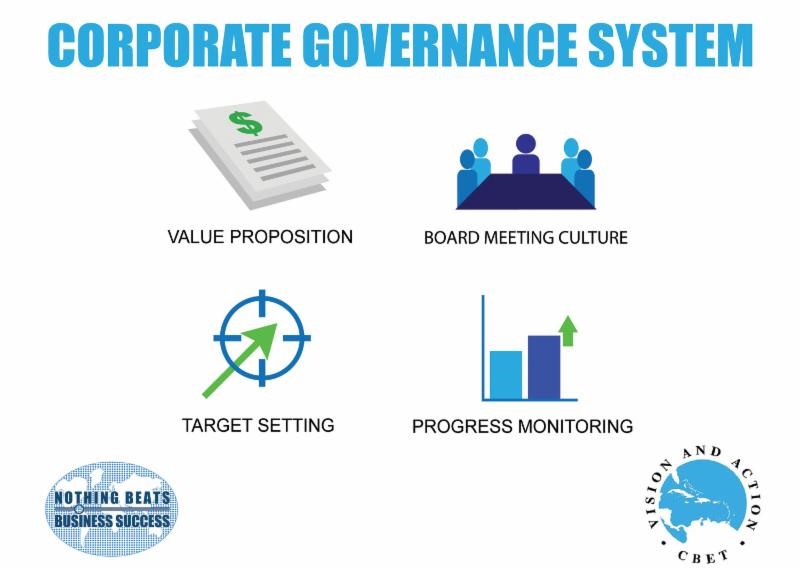“Jesus came back, God bless you, Simon, son of Jonah! You didn’t get that answer out of books or from teachers. My Father in heaven, God himself, let you in on this secret of who I really am. And now I’m going to tell you who you are, really are. You are Peter, a rock. This is the rock on which I will put together my church, a church so expansive with energy that not even the gates of hell will be able to keep it out. ” – Matthew 16:17-18
Last week we revisited five generic business systems and postulated that this perspective could be of great help in the management development process. I promised to address these business systems in turn over the next several weeks. We shall begin with the Corporate Governance business system.
In the same way that our relationship with God is the foundation on which we build our lives, the corporate governance business system is the foundation on which to build a business. My mantra to start-up entrepreneurs is “Start your business with a board meeting”. This often comes as a surprise but sooner rather than later many entrepreneurs see the benefits of introducing discipline into the business, as early as possible, and its contribution to sustainability and business success. Some could not be bothered with this advice and their rate of steady business growth is impeded commensurately.
As an aside, if all parents were to exercise their responsibilities to lay a sound moral and ethical foundation for their children rather than hope that the church, school and the community would take care of that, the whole world would be less riddled with rampant corruption, indiscipline, greed, ego trips, an intolerable wealth divide and the lack of respect for life, law and property.
The management of the Corporate Governance business system is the foundation for sustainable business success.
The first board meeting is attended by the entrepreneur, a business partner (if appropriate) and a Shepherd to offer business advice. At this meeting the ownership of the company is confirmed and at least one board member is appointed, who by definition becomes the Chairman of the board. The business Value Proposition, the introduction of an innovative product or service which is likely to be attractive to customers, is carefully explained and recorded. Other board members may be added as and when necessary.
The Agenda and Minutes combination are set up as a process which guides the record-keeping of the deliberations at board meetings and hence is instrumental in building the history of the business. Legal and statutory matters are addressed and operating rules are carefully delineated. Leadership and management responsibilities are assigned. Subsequent regular board meetings should flow seamlessly from this initial step.
The role of the Board is three-fold: (1) to interpret shareholder policy, which is relatively straight forward for a start-up business; (2) to set measurable and realistic targets for the management to achieve in a specific time period; and (3) to monitor the progress of management at the end of the specified time period. Corrective action is taken, if necessary and step (2) is repeated for the next period.

As a house is only as strong as the foundation on which it is built, so too a business is only as strong as the corporate governance system that underlies its operation. Let us recognize that enterprise development is the sector on which our future economies will be built …remember to “start your business with a Shepherd and a board meeting”.
(Dr. Basil Springer GCM is Change-Engine Consultant, Caribbean Business Enterprise Trust Inc. – CBET. His email address is basilgf57@gmail.com and his columns may be found at www.cbetmodel.org and www.nothingbeatsbusiness.com.)
